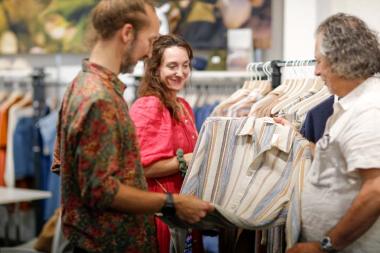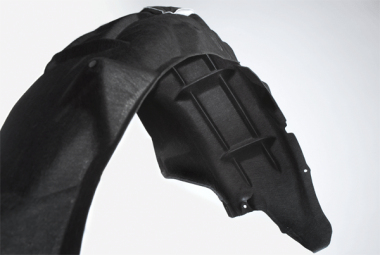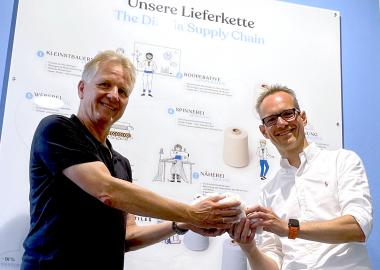Biobased HeiQ technologies for better sleep at Heimtextil 2024
HeiQ’s biobased textile technologies are set to show how they can change the sleep environment for the better while meeting an increasing demand for sustainable solutions that are in tune with nature. HeiQ Skin Care, HeiQ Allergen* Tech, HeiQ Cool, and HeiQ Mint are going to be showcased at the Heimtextil show in Frankfurt beginning of January.
HeiQ presents a complete set of tailored textile technologies that is said to improve the sleeping environment: "Unlocking Better Sleep". Therefore, HeiQ introduces a range of innovative products designed to enhance the quality of a comfortable night’s rest through sustainable and biobased solutions.
According to a recent study by the School of Architecture, Victoria University of Wellington (New Zealand), “individuals spend more than 50% of their time at home in the bedroom”. Another research from the Fatigue Countermeasures Laboratory, NASA Ames Research Center (United States), concluded that “sleep is critical to health and daytime functioning. For individuals to achieve optimal sleep, they must have access to a sleep environment that allows them to achieve quality sleep.” These are strong indicators that we should treat sleep with the highest importance that it deserves.
The flagship products leading this positive change are the 100% biobased cosmetic technology HeiQ Skin Care, the plant-based deodorizer HeiQ Mint (botanical freshness), the dual action cooling solution HeiQ Cool, and HeiQ Allergen Tech that reduces exposure to inanimate allergens through active probiotics. These biobased innovations are set to redefine the sleep experience and contribute to overall well-being.
HeiQ Skin Care is the most recent addition to HeiQ’s portfolio - a synbiotic textile finish promoting a balanced microbiome for glowing skin. Unlike conventional products, HeiQ Skin Care utilizes pre- and probiotics integrated into a biobased matrix, offering long-lasting cosmetic benefits. It is particularly suited for products that are in direct and long contact with skin, such as pillowcases, duvet covers or bed sheets, acting as a cosmetic care session during sleep.
Heiq Materials AG































